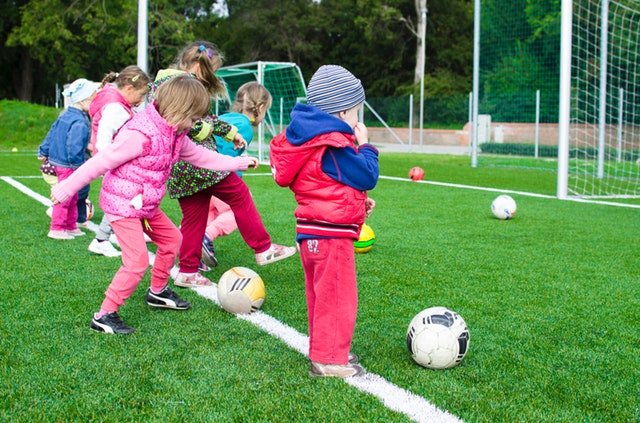As a parent these days, there’s a lot of pressure to raise your kids perfectly. In reality, of course, parenting is a lifelong endeavor in trial and error. It’s just not possible to do everything right, partially because there are no clear answers to some parenting problems. Every kid and every situation is different!
With that said, some activities are known to be almost universally beneficial to kids. Participation in team sports, for instance, can teach kids valuable life lessons and help them grow into resilient, empathetic adults. Here are 5 great lessons kids can learn from playing team sports from a young age.
1. The Value of Competition
We live in a competitive world—that’s a fact. Competition can be helpful or harmful, depending on how it’s approached. Coaches and parents who emphasize effort and enjoyment in competition over simply winning and losing can help kids reap the many benefits of competition.
Experiencing competition can teach kids to push themselves and reach new heights in their abilities, gain collaboration skills by working with their team to win, and learn constructive risk-taking and goal-setting. Kids can gain so much value out of healthy competition and may become more persistent and resilient by working toward the win together.
2. The Importance of Safety
Children often feel invincible and don’t understand that safety is important in every activity. Team sports offer a lot of health benefits, but there are certain safety risks involved with participation. The injury rate for high school youth sports is about 2.9 for every 1,000 exposures and kids of any age can become injured when playing sports.
Though there are risks, participation in team sports can also help kids learn how to prevent injury in themselves and others. They’ll learn about safety equipment, best practices for warming up and cooling down, and how to conduct themselves safely during practices and games. That knowledge can transfer over to other areas of their lives and help them to prevent injuries and accidents in a range of situations.
3. The Thrill of Winning (and, the Agony of Losing)
Life is a series of ups and downs, and kids need to learn this before they enter the high-stakes world of adulthood. By participating in team sports, children can learn the thrill of winning and the agony of losing with a support system—the other members of their team. Children on sports teams learn to lift each other up when they lose and celebrate in a healthy way when they win.
4. The Healing Power of Being Part of a Team
Children who suffer from any kind of trauma, such as adopted children who are going through a transition period and may have a troubled past, can often find comfort and emotional healing in team sports. Being part of a group can help kids feel secure, loved, and accepted, which is key for moving forward after trauma such as neglect or instability.
5. The Value of Sportsmanship
One of the best life lessons kids can learn on a sports team is how to cultivate good sportsmanship and conduct. By winning and losing together, kids can learn how to take both victory and defeat with grace. High-fiving the other team, not gloating about a big win, and learning how to avoid getting angry when things don’t go their way on the field or court are all simple but important lessons that kids will learn through participation in team sports.
Sportsmanship is all about managing one’s emotions and respecting others—key life skills that build emotional intelligence and will help kids succeed later in life.
Most people look back on their experiences in youth sports with fondness. Being part of a team and becoming close with one’s teammates is an experience that makes a huge difference in kids’ lives. Life is really all about attitude, and when kids learn to have a good attitude on a team, it will serve them well in college, the workforce, and beyond.
Parents can feel good about having their kids participate in team sports. It’s a healthy way for kids to learn, grow, and gain valuable life lessons under the guidance of their coaches, teammates, and their own mistakes and successes.











